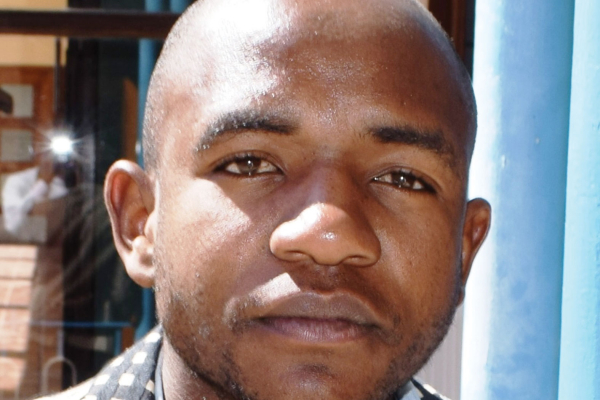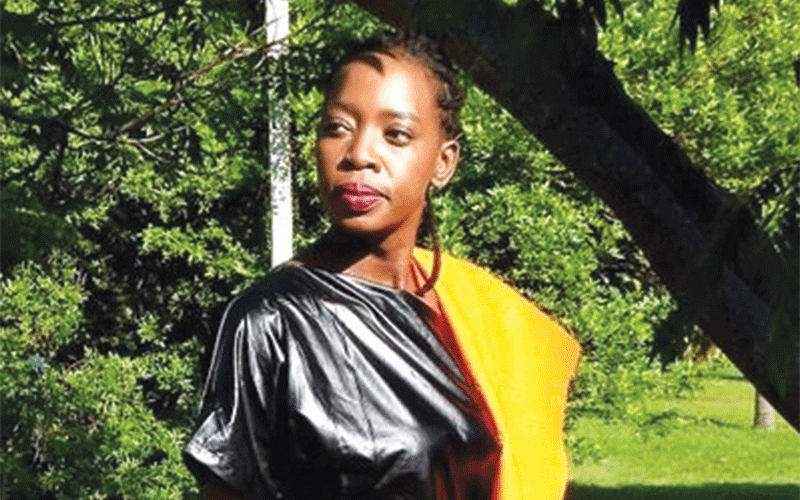
Between the Lines BENIAH MUNENGWA
Title: Ungentle Touch
Author: Titus Bonie Moetsabi
ISBN: 1480119164
Published: 2011
Poetry could be the in-thing in town. Well, the National Arts Merit Awards (Nama) statistics can show that. What’s Nama? And is Nama a true yardstick for literary measurement, many may ask, but those are questions for another day.
In the same light, I met an anthology compiled in 2011, which puts together the realities of separation and the forces that keep people apart into one, making a union of resentment, aspiration and longing into one entity.
Titus Bonie Moetsabi injects honesty into his lyrical pieces, Descending on the plight of men at home, Men in exile and Civilisation abroad, where he touches on sexuality, governance and globalisation, but with the overlying thematic concern being corruption.
- Chamisa under fire over US$120K donation
- Mavhunga puts DeMbare into Chibuku quarterfinals
- Pension funds bet on Cabora Bassa oilfields
- Councils defy govt fire tender directive
Keep Reading
Titus Bonie Moetsabi; I met him once at some public reading platform somewhere in Mount Pleasant, Harare, and one of the things that I remember of him is that all his utterances confessed and read just like the anthology under my scope, Ungentle Touch.
The pain of sacrifice, distance, separation and displacement oozed out of him from every single utterance, poise and expression that he made. I remember him confessing that distance had inevitably invaded his pathway to enjoying the fruits of physical and not virtual companionship, leading to the displacement of priorities by the involved family members.
To him, being in the diaspora had turned to be a manifestation of graduating from being a marriage partner to that person who only is there to slave for economic returns and oil-up the love for those he left at home and all their carefree lifestyles, while sadness and lonely days kept him company. In his own words, introducing the anthology, he writes: “I am tortured by our absent mutual passions, or Here where my heart and Mind are banished, or While I work far away from home.” Thus, the poet arranges the anthology in a line that reveals all it feels and leads to when one is displaced, exposed to war, and all that is found in economically- induced exiles.
This anthology, however, should not be treated as only a love and separation treatise, for it manoeuvres into the corridors of power and governance in African societies. The concept that it rides on is that domestically, governance heads and modes have failed, and since they have failed, they have pushed their citizens, the ones who specifically should have looked up to them, to lands so far away, where even in their capacity as aliens, they find it much more warm and welcome, — and all this in spite of war and racial differences.
In Exiles and Passions, Moatsebi pens, Reality is the politician farting greediness, on intelligent society, or The glow of the fart is murky. The reading of such a line leaves the reader with the suggestion that, for all the social, political and economic problems that the general public is facing, it is the politician who is the biggest architect of it all.
Outstanding is that Moatsebi expresses his frustrations without overplaying his themes and anger, remaining within the confines of art and maturity, unlike most inexperienced poets who mistake rants for poetic flow and class.
Writing, he adds, Singajindi majita, Rambai Makashingirira with robbers of life, or Strippers of electricity, salary, bread, water, mobile credit, internet, orThieves in failed States. Who are these? They are the ruling class who make home an incubation hub for poverty, street mongers, beggars and exiled souls who degenerate their families into dysfunctional entities.
It becomes clear that, to be a man full of mere longing and nostalgia is to be close to death. Most personas the reader encounters are full of desire and longing, but with no single realisation of fulfilment.
The intricate talent of managing words and moments, all in the end turnv into some piece of art, a form of painting, a portrait, some beautiful intrusion, art and life. Such is the magic displayed in the mesmerising poem, The Bicycle Man of Kabul.
Stanza two of the poem reads: Today the bicycle man of Kabul/Was hit by a car from behind/And fell then woke up, smiling/At slippery car, bicycle, slippery life,/He continued his journey, smiling.
In spite of the sadness associated with life, happiness is that which we still see in the life of simple men like the bicycle man. Maybe what is needed in life is just to be content, smile and yearn for the good of your motherland.
But as Right of Departure reads, We will understand this world when we depart,/World of singing guns,/Bedrooms of silent lips,/Whose song is lost in cyber wars,/Wars of lemon and chili pain, reducing marriage and life to some kind of complex, maybe only comprehended after passing on.
Poetry, when well written, becomes major inroads into life, in most of which man either finds himself or questions his state. From Moetsabi, the sanity of life is that which one longs for. But up until one finds it, the questioning continues, forever letting us restless like an ungentle touch.











